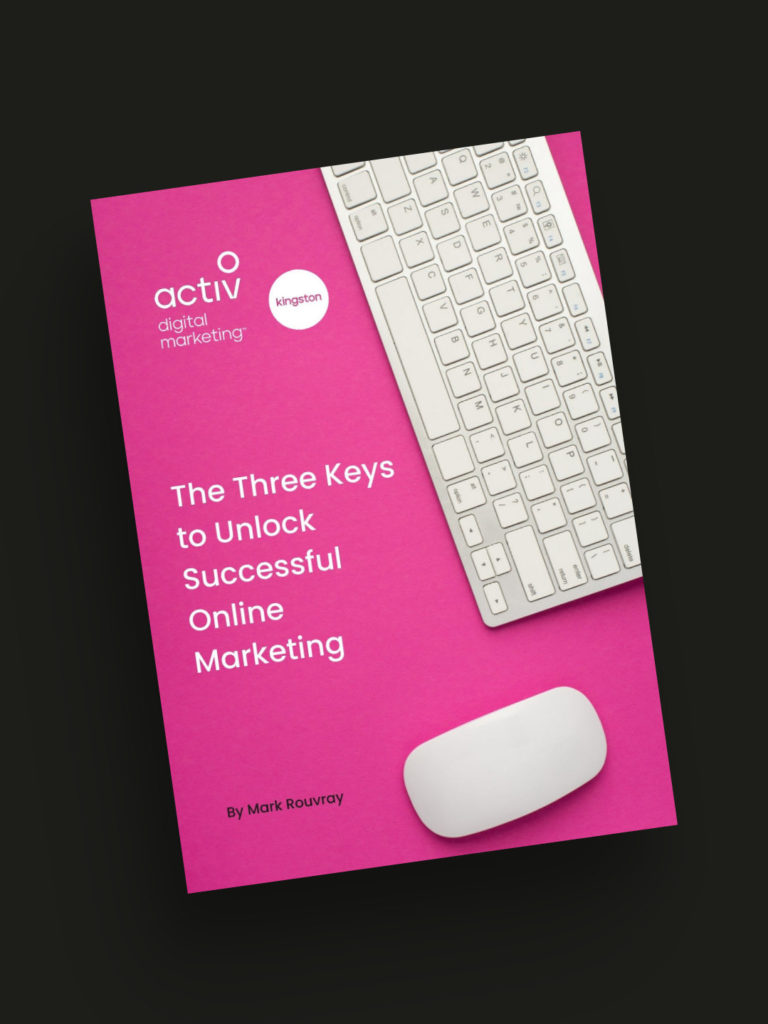Know your customers and competition
Who would be your ideal client? If you can easily answer this then you are off to a good start. You may, of course, have different ones for different products and services and also specific segments within these. For each, you should be able to describe them, their social demographic and where you are likely to find them. Think about what else is likely to interest them.
Take a look at your competition and what they offer. What do you that makes you different? This is your USP (unique selling proposition) which will separate you from the competition. Make sure this comes across in your marketing.
80/20 Rule applies
You can get 80% of what is required done in just 20% of the time. Where many go wrong is spending the remaining 80% trying to perfect the last 20%. Better to get it done, test it and then update based on feedback and results.
Test quickly and at least cost rather than invest heavily in something that might not work. That goes for most aspects of your products and services and your marketing. For example, you don’t need an all singing, all dancing website which costs a fortune – it may turn out you have invested in the wrong things.
Make your website the core of your marketing
Ok so obviously I am going to say you need a website. A professionally designed website acts like a sales engine for your business. It needs to create a good first impression and then tick all the boxes to convert a little interest into business. A website is your key marketing asset and so it is worth investing the time in it and then using the rest of your marketing to drive people to it. Having good marketing materials on your website means doing it right and once only – you don’t need to constantly re-invent content for other marketing. Your other marketing is about attracting attention, raising awareness and interest but without selling – often not the best approach in many other channels.
Choose the best marketing channels for you
It’s easy to feel overwhelmed with the range of options for marketing and the temptation is to think you need to be active in all of them. As a small business, you are unlikely to have the time or resources. It is best to choose one or two channels which most easily allow you to target your specific customer base- that’s why being clear on your customers is so important. Products or services that have regular online search will benefit from Pay per Click advertising and search engine optimisation to increase the visibility of their website on Google. Facebook is great for targeting end consumers and LinkedIn for business to business connections. Businesses with products and services that work well with images can use Instagram. However, this is a simplistic segmentation, and it really depends on the details of the specific business.
It is extremely easy to waste a lot of money on promotion through these channels if you are not sure what you are doing – you either need to be an expert or hire one.
Don’t ignore offline marketing
Offline marketing can include printed materials like leaflets, business cards etc. As well as signage on outlets, vehicles, clothings etc. It might be using printed ads in local papers / brochures or distribution of leaflets in the local area. It can also be in person via door to door contacts or through business networking meetings. All these can prove an effective way to gain interest and raise awareness for your products and services. The power comes when they work in combination with your website – driving people to the most relevant information.
- A business card / leaflet, branded vehicle or A Board that gets people looking at your website.
- A direct contact that’s followed up with an email and link to specific information.
- A small ad that grabs attention and makes an offer with the details shown on the website.
It can take multiple contacts before you get a sale and so these all contribute to that process.
Build relationships, engage – don’t just sell
People have a natural distrust when being sold to; even when they are actually interested in what you are selling. Building relationships and trust means they are more likely to be open to listen and learn more. Keep in mind what the customer journey is likely to be for your product and make sure you aren’t selling when you should be informing. It is also more likely to lead to stronger relationships in future that creates customer loyalty with repeat purchases and who are open to other products and services. They are also more likely to provide referrals to other clients too.
Prioritise your time and your money
Many startups don’t have a startup fund or budget but you should prioritise your spend. Ask yourself what will give me the biggest bang for the bucks! I have seen new retail outlets spend a fortune on fitting their premises and putting marketing on hold – the cost of the rug or mirror would have paid for their website. I have also dissuaded clients from non-essential functionality, the cost of which would have paid for their first 3 months website promotion.
Follow Up (customer journey)
For many businesses, you don’t get a sale on the first client contact. A common mistake is to assume clients will just come back to you. Don’t assume that if they don’t, it means they weren’t interested.
In most cases, potential clients go through stages before they are ready to buy. You will need to get their attention as they are not likely to be aware of you or your products. Interest will come from focusing on their problem and offering solutions and benefits – making connections at an emotional level where possible; can prove to be the most powerful. Depending on what you offer, there may be a period of evaluation; comparing you with the competition. You can provide supporting info, knowledge and experience. For some businesses, there may be an opportunity to “trial” the product/service or at least a free first step e.g. consultation.
Keep in mind the customer journey and think what might be the best follow up for them. In reality, it can take multiple customer contacts before a client is ready to buy but don’t be afraid to ask for the business.
Marketing doesn’t end with a new customer
Make sure that new customers feel great about their decision to have chosen you. That might be reminding them of all the benefits – may be only some of which they have yet seen. Over time, you can build customer loyalty which will lead to repeat purchases and adoption of new ones. It also means your customers are more likely to refer you to others and grow your customer base further.
Activ consultants
Activ consultants are not just web designers or techie specialists. We have a broad range of skills and experience which benefits our clients – focusing on the business and not just the technology. If you would like to discuss your business then please contact us.

